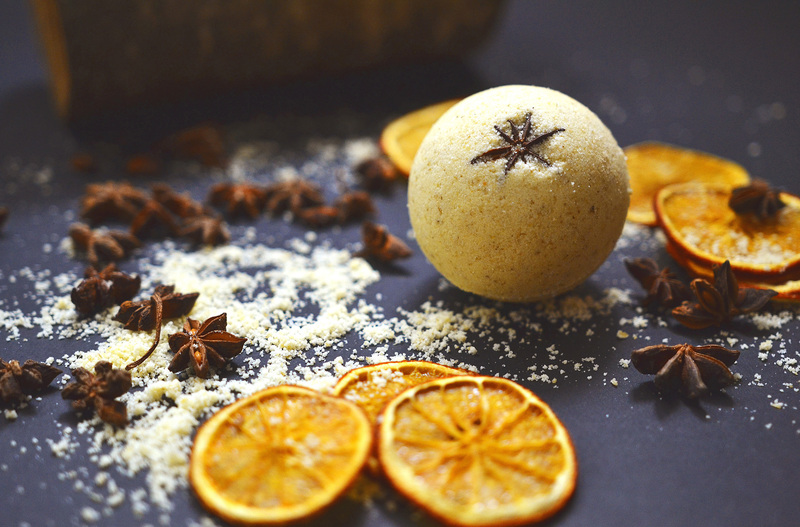Jewellery Cleaning: From Basic Care to Expert Techniques
Posted on 23/09/2025
Jewellery Cleaning: From Basic Care to Expert Techniques
Jewellery is more than an adornment. It's an expression of your style, heritage and often, your most precious memories. However, daily wear, exposure to pollutants, and even skin oils can dull the sparkle of your favorite pieces. Whether you wear jewelry occasionally or every day, understanding the proper methods of jewellery cleaning can ensure your treasures shine for years to come.

The Importance of Jewellery Cleaning
Over time, grime, dust, lotions, and oils accumulate on rings, necklaces, earrings and other pieces. This not only affects their aesthetic appeal but can also weaken settings and lead to lost gemstones. Regular jewellery maintenance preserves both the beauty and the structural integrity of your items.
Why Clean Your Jewellery?
- Preserve brilliance: Cleaning removes residues that mask gemstone brilliance and metal shine.
- Ensure hygiene: Bacteria and allergens can accumulate, especially on earrings and body jewellery.
- Extend lifespan: Regular care reduces reactive buildup and wear, preventing potential damage.
- Spot early issues: Handling your jewellery during cleaning makes it easier to spot loose stones or worn prongs.
Understanding Your Jewellery: Different Materials and Their Care Needs
The key to effective jewellery cleaning is understanding your jewellery's composition. Each metal and gemstone type requires special consideration.
Metals and How to Treat Them
- Gold: Malleable and non-tarnishing, but sensitive to scratches.
- Silver: Prone to tarnish but easily restored with proper methods.
- Platinum: Extremely durable, requires minimal care beyond gentle cleaning.
- Stainless steel & titanium: Resistant to corrosion, but harsh chemicals should still be avoided.
Precious and Semi-Precious Gemstones
- Diamonds: Hard, but attract oil and grime easily.
- Emeralds, opals, pearls: Delicate, porous, and may be damaged by chemicals or ultrasonic cleaners.
- Sapphires and rubies: Tough but still benefit from gentle handling.
- Costume jewellery: Often glued settings that can dislodge in water.
Always confirm the care requirements of your unique jewellery pieces before cleaning.
Basic Jewellery Cleaning: A Step-by-Step Guide
Even with expert services available, knowing how to clean your jewellery at home is empowering, cost-effective, and essential for ongoing care.
The Gentle Soap and Water Method
- Prepare lukewarm soapy water: Mix a few drops of mild dish detergent with warm water in a small bowl.
- Soak your jewellery: Place your items in the solution for 15-20 minutes to loosen grime.
- Gently scrub: Use a soft-bristle toothbrush--ideally baby-sized--to clean hard-to-reach areas.
- Rinse and dry: Rinse thoroughly under lukewarm water. Pat dry with a soft, lint-free cloth.
Important: Avoid this method for pearls, opals, and vintage pieces as moisture may damage them.
Polishing Cloths for Metals
- Specialized jewellery polishing cloths can safely restore brilliance to gold and silver items.
- Gently rub the piece; do not polish gemstones with these cloths as they are intended for metals only.
Advanced Jewellery Cleaning Techniques
For those seeking a professional-level finish, the following expert techniques can rejuvenate even the dullest heirlooms. Be sure to assess the suitability for your jewellery before using these methods.
Commercial Jewellery Cleaners
- Available in liquid dips, foam or wipes, these are formulated for specific metals and stones.
- Always follow the instructions on the packaging and do a spot test on an inconspicuous area first.
- Never mix cleaners meant for different types of jewellery.
Ultrasonic Cleaners: High-Frequency Shine
- Ultrasonic cleaners use high-frequency sound waves to dislodge dirt and debris--ideal for gold, platinum, and diamond jewellery.
- Warning: Ultrasonic cleaning is not safe for pearls, opals, emeralds or any item with glued settings.
Baking Soda and Aluminum Foil Method for Silver
If your sterling silver has developed a heavy tarnish, try this DIY silver cleaning technique:
- Line a bowl with aluminum foil, shiny side up.
- Add silver jewellery, a tablespoon of baking soda, and pour over boiling water.
- Let it fizz for a minute, then remove and rinse.
Note: This method is only suitable for plain silver without delicate stones.
Lemon Juice and Olive Oil Polish
- Mix a few drops of lemon juice with olive oil.
- Dab onto a soft cloth and gently polish gold or silver jewellery for an eco-friendly clean.
Special Care for Unique Jewellery Types
Pearls and Porous Gemstones: Delicate Handling
- Wipe pearls with a slightly damp soft cloth after each wear to remove skin oils.
- Never submerge pearls or porous gems (like opals or turquoise) in water or commercial solutions.
- Regular restringing of pearl necklaces is advised to prevent strand weakening.
Antique and Vintage Pieces
- Use only dry, soft brushes; avoid all moisture.
- If in doubt, seek a professional jewellery cleaning service for irreplaceable items.
Costume Jewellery
- Costume pieces often contain adhesives or coatings. Gently wipe with a barely damp cloth and dry immediately.
- Avoid submerging or using abrasives.
What to Avoid When Cleaning Jewellery
Over-enthusiasm can sometimes backfire. To keep your jewels in optimal condition, never do the following:
- Avoid bleach, ammonia or harsh cleaners: These can erode metals and etch gemstones.
- No toothpaste or baking soda on soft stones: Abrasives scratch softer gemstones and gold.
- No prolonged soaking of glued or vintage pieces: Water can dissolve adhesives.
Jewellery Cleaning Frequency: How Often Is Enough?
How often should you clean your jewellery? It depends on wear and style:
- Everyday pieces: Clean monthly to prevent build-up.
- Occasional wear: Clean before and after events, or seasonally.
- Heavily soiled items, or those exposed to lotions, perfumes, or swimming pools, require more frequent care.
Inspect settings and fastenings at each cleaning to catch issues early.
Storage is Part of Cleaning
Clean jewellery benefits from proper storage:
- Store each piece separately in soft pouches or lined boxes to avoid scratches and tangling.
- Keep away from direct sunlight, humidity, and chemicals.
- For silver, anti-tarnish strips or airtight containers help prevent dulling.
Professional Jewellery Cleaning: When to Seek Help
There are times when only a professional jeweller can guarantee the best results:
- Heavily tarnished or soiled items that resist home techniques.
- Jewellery with complex settings, antique or fragile pieces.
- Annual professional inspections are recommended to check settings and overall integrity, along with deep cleaning.
Eco-Friendly and Sustainable Jewellery Cleaning Methods
For those who care about the environment, gentle and natural solutions can be effective:
- Use plant-based detergents, dilute white vinegar, or castile soap for most gold, silver, and hard stones.
- Microfiber and organic cotton cloths work as well as synthetics but are better for the planet.
A Handy Checklist: Jewellery Cleaning Do's and Don'ts
- Do use a soft, lint-free cloth after every wear.
- Do store jewellery away from air and chemicals.
- Do use only recommended cleaners for specific gemstones and materials.
- Don't expose delicate stones to ultrasonic or steam cleaners.
- Don't use abrasive scrubs or harsh chemicals.
- Don't ignore professional check-ups for valuable items.

Frequently Asked Questions on Jewellery Cleaning
Can I clean my jewellery with toothpaste?
No. Toothpaste is abrasive and can scratch gold, silver, and most gemstones. Use a mild soap and water solution instead.
How do I clean diamond jewellery for maximum sparkle?
Soak in warm soapy water and brush gently with a soft toothbrush, focusing on the underside of the setting where dirt accumulates.
Is ultrasonic cleaning safe for all jewellery?
No. Ultrasonic cleaners can damage soft, porous or treated stones and vintage pieces. Always check suitability before use.
How should I clean my pearl necklace?
Wipe gently with a soft, barely damp cloth after each wear. Never soak or use chemical cleaners.
How often should I have my engagement ring professionally cleaned?
At least once a year, or more often if you wear it daily and expose it to lotions and household chemicals.
Conclusion: The Secret to Lifelong Sparkle
From the gentlest everyday care to expert cleaning techniques, looking after your jewellery need not be complicated. With the right approach, you'll preserve not just the value and appearance, but also the sentimental connections your favourite pieces represent. Make jewellery cleaning a rewarding routine, and keep your treasures dazzling for generations.
Ready to give your collection some TLC? Start with our basic jewellery care tips and graduate to expert techniques. Or, for those prized or complex items, trust a reputable jeweller for a deep professional clean and safe inspection.
Remember, the best sparkle comes from both regular cleaning and loving attention--so your jewellery can continue to shine as bright as your memories.
Latest Posts
Unlock the Potential of Your Carpets and Flooring
Achieving Purity: A Dust-Free and Allergen-Optimized Home
Compose a House Cleaning Schedule That Becomes Second Nature
Jewellery Cleaning: From Basic Care to Expert Techniques
Washing Velvet Curtains: Ensuring They Stay in Perfect Condition




